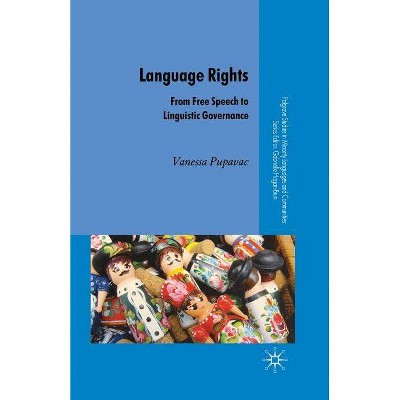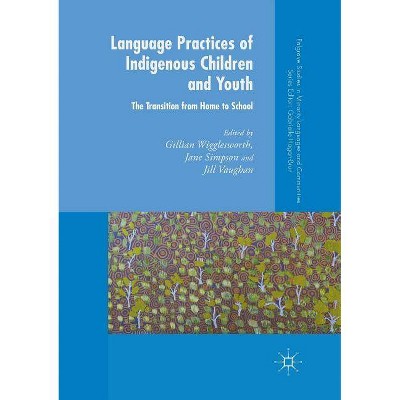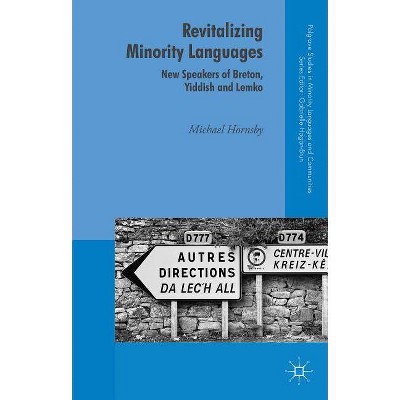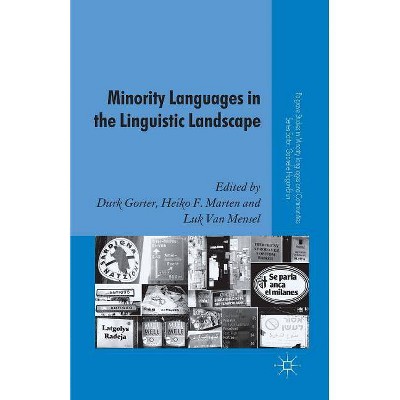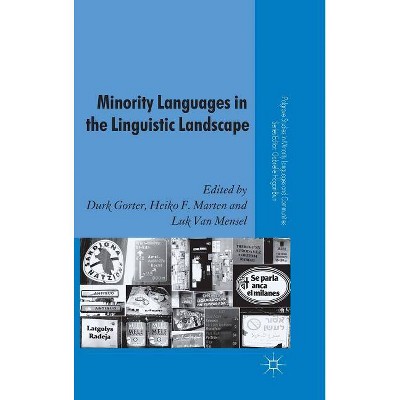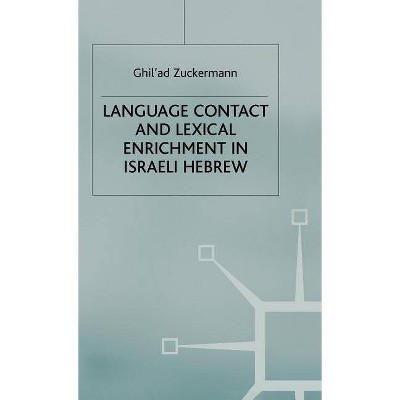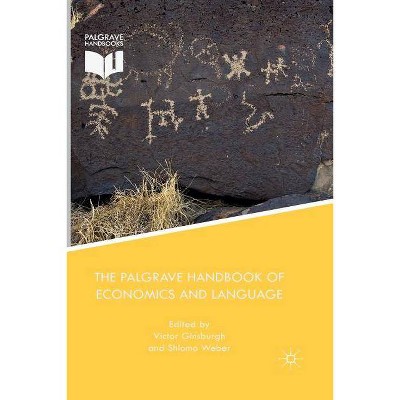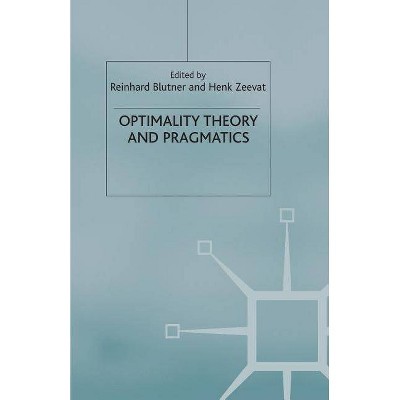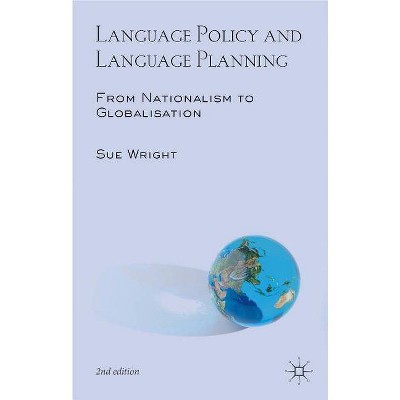Language Policy and Economics: The Language Question in Africa - (Palgrave Studies in Minority Languages and Communities) by Nkonko M Kamwangamalu
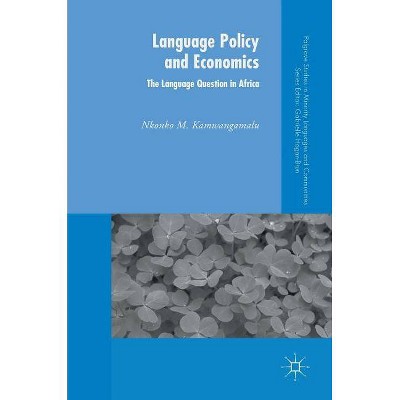
Similar Products
Products of same category from the store
AllProduct info
<p/><br></br><p><b> Book Synopsis </b></p></br></br>This book addresses the perennial question of how to promote Africa's indigenous languages as medium of instruction in educational systems. Breaking with the traditional approach to the continent's language question by focusing on the often overlooked issue of the link between African languages and economic development, <i>Language Policy and Economics</i> argues that African languages are an integral part of a nation's socio-political and economic development. Therefore, the book argues that any language policy designed to promote these languages in such higher domains as the educational system in particular must have economic advantages if the intent is to succeed, and proposes Prestige Planning as the way to address this issue. The proposition is a welcome break away from language policies which pay lip-service to the empowerment of African languages while, by default, strengthening the stranglehold of imported European languages.<br><p/><br></br><p><b> From the Back Cover </b></p></br></br><p> </p> <p>'This volume is an ambitious undertaking, fruit of meticulous research and deep reflection. Professor Kamwangamalu's panoramic assessment of language planning, economics and game theory in colonial, post-colonial and globalised sub-Saharan African settings brilliantly deploys notions of 'prestige planning' to recurring dilemmas about the choices of medium of instruction in schooling and language choices in public and private institutions. This volume is groundbreaking theoretically and methodologically, but remains grounded in the real world needs of diverse African communities in their unique historical experiences of colonialism and their modern trajectories in an increasingly interlinked world. Professor Kamwangamalu's reinvigoration of the framework of 'prestige' in language and how it can be activated adds great practical value to his impressive scholarly achievement.'</p> <p>--<b>Joseph Lo Bianco</b>, <i>Professor, The University of Melbourne, Australia</i></p> <p> </p> <p>This book addresses the perennial question of how to promote Africa's indigenous languages as medium of instruction in educational systems. Breaking with the traditional approach to the continent's language question by focusing on the often overlooked issue of the link between African languages and economic development, <i>Language Policy and Economics</i> considers African languages an integral part of a nation's socio-political and economic development. Therefore, the book argues that any language policy designed to promote these languages in such higher domains as the educational system in particular must have economic advantages if the intent is to succeed, and proposes Prestige Planning as the way to address this issue. The proposition is a welcome break away from language policies which pay lip-service to the empowerment of African languages while, by default, strengthening the stranglehold of imported European languages.</p> <p> </p> <p><b>Nkonko M. Kamwangamalu</b> is Professor of Linguistics at Howard University, Washington, DC. He is co-Editor of <i>Current Issues in Language Planning</i>, author of <i>The Language Situation in South Africa</i> (2004), of articles in <i>Chicago Linguistic Society</i>, <i>Georgetown Round Table on Languages and Linguistics</i>, <i>Multilingua</i>, <i>Applied Linguistics</i>, <i>Journal of Asian Pacific Communication</i>, <i> World Englishes</i>, <i>Language Problems and Language Planning</i>, <i>Journal of Multilingual and Multicultural Development</i>, <i> Journal of Creative Communications</i>, <i> Studies in the Linguistic Sciences</i>, <i> TESOL Quarterly</i>, <i> Annual Review of Applied Linguistics</i>, <i>International Journal of the Sociology of Language</i>, <i> </i>to name a few, and of chapters in edited collections.</p><p/><br></br><p><b> Review Quotes </b></p></br></br><br>"The book provides an in-depth review of historical and current analysis of the language question in Africa and presents a valuable case study combining the tenets of language economics and LPP." (Weiguo Zhang, Language Problems and Language Planning, Vol. 43 (4), 2019)<br>"This book provides a fruitful resource for understanding most of the core issues of LPP in sub-Saharan Africa ... It makes for an informative read and is written in a style that is also accessible to undergraduate students. ... Language Policy and Economics is a monograph written not only by one of the most influential scholars on language policy in sub-Saharan Africa, but also by someone who, at least to some degree, is an African language activist." (Stephanie Rudwick, Slovo a slovesnost, Vol 79 (2), 2018) <p/>"The book is well-written, comprehensive, and laudable in its unique focus on language policy and economics. It recognises the contributions, challenges, and solutions involved with language questions in Africa. It provides a new approach for language-policy-and-planning studies around the world by balancing former colonial languages and African varieties through the lens of the author's model. ... The book is key for continuing treatments of the interactions between policy and practice, with specific emphasis on socioeconomic value in the linguistic market." (Tianwei Zhang, Journal of Mutilingual and Multicultural Development, Vol. 38, 2017)<p></p><br><p/><br></br><p><b> About the Author </b></p></br></br>Nkonko M. Kamwangamalu is Professor of Linguistics at Howard University, Washington, DC. He is co-Editor of <i>Current Issues in Language Planning</i>, author of <i>The Language Situation in South Africa </i>(2004), of articles in <i>Chicago Linguistic Society</i>, <i>Georgetown Roundtable on Language and Linguistics</i>, <i>International Journal of the Sociology of Language</i>, <i>Multilingua</i>, <i>Applied Linguistics</i>, <i>World Englishes</i>, <i>Language Problems and Language Planning</i>, <i>Journal of Multilingual and Multicultural Development</i>, <i>Studies in the Linguistics Sciences</i>, to name a few, and of chapters in edited collections.
Price History
Price Archive shows prices from various stores, lets you see history and find the cheapest. There is no actual sale on the website. For all support, inquiry and suggestion messagescommunication@pricearchive.us
